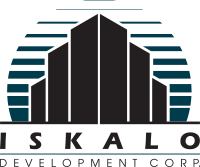Mixed-use development is gaining popularity across the U.S. and around the world to accommodate our evolving environmental needs and population growth. Mixed-use developments promote urban growth, providing businesses, investors and residents a range of benefits.
3 Benefits of Mixed-Use Development
Local Economic Growth
Plenty of research shows that mixed-use development encourages economic growth in local communities. Mixed-use development promotes walkability, which plays a huge role in the economic viability of a city. A walkable, village-style environment promotes business and housing investment.
Local businesses can also benefit from the synergy that mixed-use development provides. With close proximity to nearby amenities such as restaurants and fitness centers, employers can showcase their convenient location for potential employees, clients and business travelers. Mixed-use developments also support local governments with significantly higher returns through property and sales taxes.
Environmental Sustainability
Mixed-use development encourages public transportation and pedestrian and bike travel, reducing a neighborhood’s carbon footprint. By limiting car usage and street congestion, mixed-use communities are able to minimize air pollution and promote energy conservation. They also promote efficient land use, preserving historic and natural resources.
Physical and Mental Health
The pedestrian-friendly environment that mixed-use development brings to communities encourages active and healthy lifestyles. A lack of walkable infrastructure can lead to a lower quality of life and a higher risk of health issues for its residents. According to the Journal of the American Heart Association, adults residing in less walkable neighborhoods had a higher predicted 10-year risk of cardiovascular disease, higher systolic blood pressure, and higher likelihood of having diabetes mellitus.
Not only does mixed-use development strengthen a city’s physical well-being, but also its mental and social health. Urban, mixed-use neighborhoods foster a sense of community and provide a variety of recreational activities to keep residents and employees happy, social and productive. Employee-residents are also relieved of the stress of a long commute.

